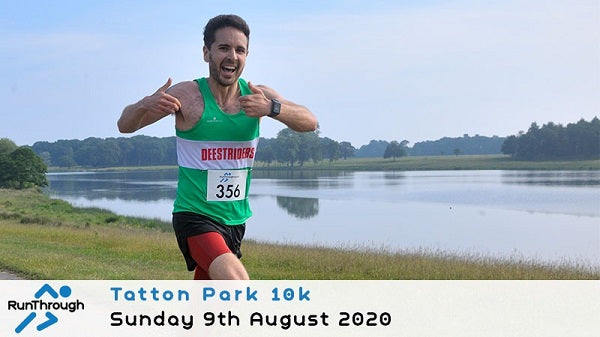
It's been a tough few months for runners. Since March, the response to Coronavirus has caused a steady stream of race cancellations. From 5Ks to 10Ks, and all the way up to marathons, it has been week after week of seeing events that were hoped to go ahead being forced to cancel for safety reasons. Now, thanks to guidelines issued by *Run Britain and UK Sport, the tide may be turning.
What are the new guidelines?
These guidelines have allowed, with conditions, for road races to take place from July 11 (effectively August 1, considering Run Britain's earlier restriction of not licencing any race until after July 31). The conditions are that adequate measures be put in place to make it safe before, during and after events. Implementing such measures won't be easy. However, there has already been a small number of events, and a few more are set to go ahead very soon.
Responding to the guidelines
So how will this new set of rules affect running?
The team at RunThrough.co.uk were one of the first to test the guidelines. On August 9, they hosted the Tatton Park 10K offering over 400 runners the chance to run a 'normal' race. The event was staffed by PPE-clad officials who kept runners suitably distant at all stages - arrival, start line, finish line, exit from the event, and everywhere in-between. No spectators were present. And there was also an ample supply of hand sanitiser to keep any infection at bay. Reports suggest that all runners who finished, appeared happy with the the set-up. And, more importantly, it hasn't yielded any spike in Coronavirus infection.

However, there seems no reprieve for many others. The majority of events, particularly urban road races, have still had to reschedule. With few exceptions, most organisers are looking to hold off until the Spring before hosting their next event. Others, the London Marathon being a prime example, are being super-cautious, opting instead for an Autumn 2021 event. Presumably, some of the new regulations are just too difficult to meet. Trying to hold a mass-participation road race in any significant-sized city is probably going to be challenging to say the least. Restricting spectators and keeping runners socially-distant in an open urban setting would, we expect, be much more difficult than in an enclosed park or arena.
The future of running in the UK
At the time of writing (August, 2020) it not clear what the future holds. While scientists pursue a vaccine, race organisers are going to have to make the most of the 'new normal' provided by the Run Britain. With a few races lined up, we are cautiously optimistic.

We know of at least three races scheduled this side of Christmas. Next stop for the team at RunThrough.co.uk is a half marathon at Lee Valley VeloPark on August 29. Four hundred runners will be given the chance to run this popular route. The organisers at the Leamington Spa Half Marathon are similarly well organised. Not wanting to surrender their race to fate, they have moved the venue to Warwick Racecourse. This has allowed them the opportunity to meet the new guidelines, hosting an ambitious 5,000 participants.
And for those looking to run 26.2 miles, the Marathon @ Dorney Lake is hosting a socially-distanced event, on October 4, for up to 600 marathon runners.

We look forward to seeing how these events go. Hopefully they're part of an evolution in race organisation and will show the way to many more races. We wish them well.
*NOTE : The guidelines produced by RunBritain and UK Sport only apply to events in England. Races in Scotland, Northern Ireland and Wales will be governed by other sets of rules.
